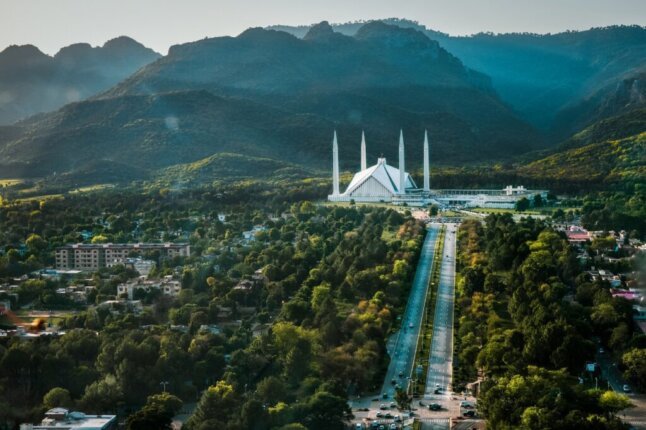ISLAMABAD: Federal Minister for IT and Telecommunication, Shaza Fatima Khawaja, announced on Monday that Islamabad will be transformed into a model digitally smart city, following the directive of Prime Minister Shehbaz Sharif to accelerate this transformation.
Speaking to the media after a meeting of the Senate Standing Committee on IT and Telecom, the minister said the move is part of an integrated national strategy to enhance education, healthcare, and connectivity across the capital.
She revealed that the Ministry of IT has already funded fiber connectivity for all public schools, Basic Health Units (BHUs), and health facilities in Islamabad. “Within the next six to eight months, all schools, hospitals, and police stations in the capital will be fiberised to ensure seamless digital access,” she added.
Shaza Fatima highlighted that free public Wi-Fi will be made available at key public spots, and through public-private partnerships, efforts are underway to bring internet access to metro buses and public spaces.
She also underlined the strong backing of the Ministry of Education for the digital transformation and said the government is actively using EdTech solutions to reach remote and underserved regions.
“We are introducing AI and emerging technologies education from kindergarten to grade six,” she said. “The Prime Minister wants every child in Islamabad to receive quality digital education.”
The minister confirmed that the same digital smart city model will later be replicated in Gilgit-Baltistan and other remote areas, aiming to ensure equitable digital access across Pakistan.
Additionally, in collaboration with the Ministry of Health, the IT Ministry is working on a ‘One Patient, One ID’ system to integrate health records. All BHUs will be connected to the internet via telemedicine solutions, allowing patients to access online specialist consultations.
To embed IT education within mainstream learning, the Prime Minister has formed a committee to include IT curriculum at all levels of education.
Shaza Fatima further announced major training initiatives in collaboration with global tech companies:
- Google will train 200,000 students
- Huawei will train 300,000 students
- Microsoft will train 200,000 students
The government also aims to train 500,000 youth in modern IT skills through these and other programs.
“Boys and girls will begin learning AI from the primary level, equipping our future generations with the tools of the digital age,” she said. “But we also want Pakistan’s IT workforce to meet global standards through coordinated national efforts.”
Earlier, the Senate Standing Committee meeting—chaired by Senator Palwasha Khan—also addressed delays in the Karachi IT Park project. Officials from the Ministry explained that the project, initially supported by Korean assistance, was delayed due to regional tensions between India and Pakistan, which raised risk concerns for the Korean partner company.
As a result, construction was halted temporarily, but the bidding process has now been re-advertised, and several Korean companies have been invited to participate. The Ministry confirmed ongoing coordination with the Korean Embassy.
The meeting was attended by Senators Nadeem Ahmed Bhutto, Dr. Afnan Ullah Khan, Dr. Mohammed Humayun Mohammed, Manzoor Ahmed, Syed Kazim Ali Shah, Saifullah Sarwar Khan Nyzee, Gurdeep Singh, Pervaiz Ahmed, and senior officers from the Ministry and relevant departments.




